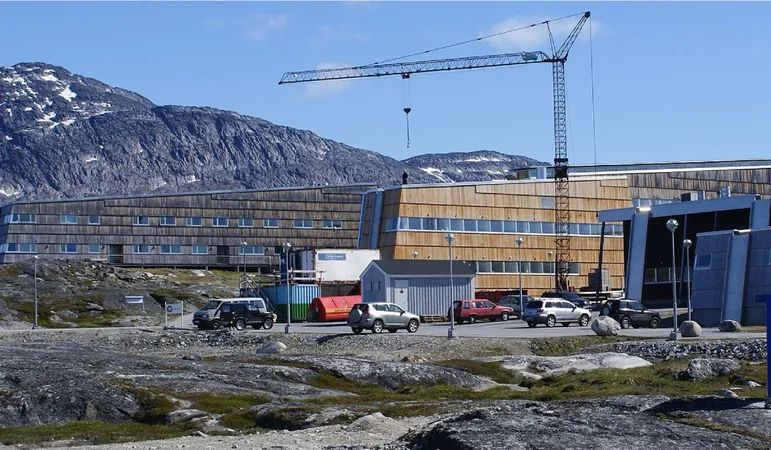
Greenland's Government Expresses Outrage Over Lack of Communication on Tsunami Landslide Study
2024-09-19
Greenland's Government Expresses Outrage Over Lack of Communication on Tsunami Landslide Study
In a surprising twist that has garnered international attention, Greenlandic ministers have voiced strong criticism of researchers for failing to communicate a significant landslide study that revealed the occurrence of a mega-tsunami in the Dickson Fjord. The groundbreaking study, published in the journal *Science*, detailed how a landslide last year unleashed abnormal waves, impacting the area for an astonishing nine days.
Key figures in the Greenlandic government, including Naaja H. Nathanielsen, Minister for Industry, Trade, Minerals, Justice, and Gender Equality, and Kalistat Lund, Minister for Agriculture, Self-sufficiency, Energy, and Environment, expressed their astonishment at the report. Their surprise was palpable enough to prompt an official joint statement, which conveyed their dissatisfaction and concern.
“This is not just interesting research; it poses a serious concern when such crucial information reaches the public first, without any prior warning,” the ministers stated. They emphasized how the Greenland government was not briefed on these critical findings, underscoring a significant lapse in communication from the Geological Survey of Denmark and Greenland (GEUS), the research institution responsible for the study.
GEUS Responds Amidst the Backlash
Following the ministers' statement, Anja Fonseca, GEUS’s Head of Communications, articulated the organization's regret over the perceived lack of communication. "It’s unfortunate that the Naalakkersuisut [Greenland's government] feels uninformed. We plan to strengthen our dialogue with Greenlandic authorities to ensure this does not happen again," she remarked.
The ministers highlighted that the information revealed by the study could serve to safeguard the public against the dangers of natural disasters. They stressed the importance of quick and effective communication regarding such events. To that end, the Greenland government has launched a task force dedicated to ensuring better preparedness for potential risks, including landslides.
Empowering Local Knowledge for Safety
In their proclamation, the ministers acknowledged the great value of local knowledge in dealing with geological hazards. They have urged residents to contribute any observations related to unstable geological conditions through reports on the government’s website.
Furthermore, this incident has underscored the ongoing friction between Greenland's aspirations for its scientific collaborations and the realities of how research is conducted within its territories. The government is eager to see an alignment with its national research strategy for 2022-2030, which implores international researchers to incorporate local knowledge into their studies to ensure that research benefits the Greenlandic people directly.
Calls for Change in Research Dynamics
This incident might mark a pivotal moment in Greenland's scientific landscape, pushing for a participatory approach that prioritizes the voices of locals in research missions. The growing frustration among Greenland's leaders indicates a turning tide, where they are likely to demand not only results but also respectful engagement from researchers operating in their domain.
As the story unfolds, it remains to be seen how GEUS and other institutions will adapt to the calls for better communication and collaboration. For now, the echoes of this criticism serve as a clarion call for a more informed and engaged research community in Greenland.



 Brasil (PT)
Brasil (PT)
 Canada (EN)
Canada (EN)
 Chile (ES)
Chile (ES)
 España (ES)
España (ES)
 France (FR)
France (FR)
 Hong Kong (EN)
Hong Kong (EN)
 Italia (IT)
Italia (IT)
 日本 (JA)
日本 (JA)
 Magyarország (HU)
Magyarország (HU)
 Norge (NO)
Norge (NO)
 Polska (PL)
Polska (PL)
 Schweiz (DE)
Schweiz (DE)
 Singapore (EN)
Singapore (EN)
 Sverige (SV)
Sverige (SV)
 Suomi (FI)
Suomi (FI)
 Türkiye (TR)
Türkiye (TR)